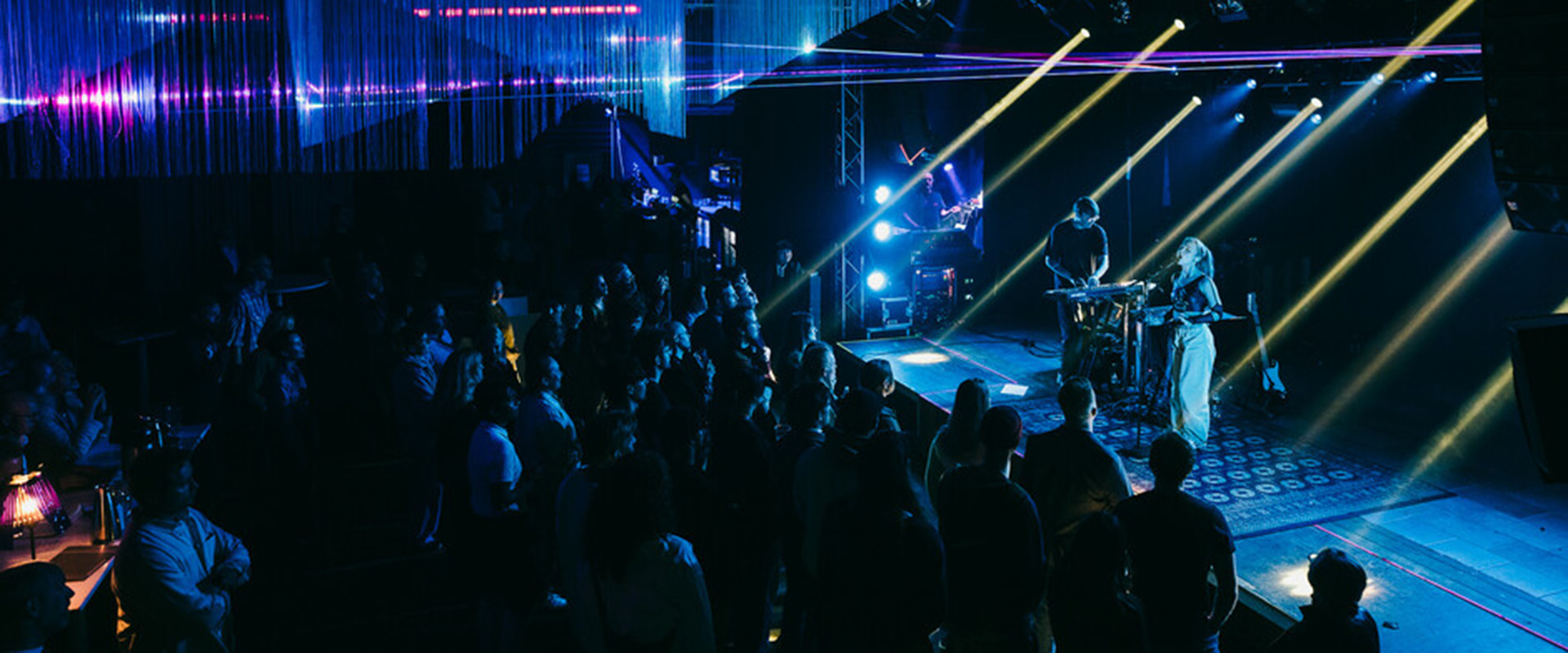When CreaTeME at the University of Agder received the status of Centre for Exellence in Education (SFU) last autumn, extensive establishment and start-up work was launched at the Faculty of Fine Arts. Nine months later, the organisation has been set up. A new website has been launched and the centre is set to be bustling with activity.
The centre also has a new leader in Professor Daniel Nordgård from UiA's Department of Popular Music. He recently took over from his colleague Jan Bang and is looking forward to the challenges ahead:
“CreaTeME is one of the greatest opportunities the Faculty of Fine Arts has had for further development and building something bigger. It's really exciting to be part of this,” Nordgård says.
“The trust we have received as a Centre for Excellence in Education commits us. And it’s nice to see that the network we have built up over many years helps equip us for the task,” he says.
Great interest in networks
The centre, which will promote the creative use of technologies in higher music education, is in full swing with a busy and eventful autumn. CreaTeME recently invited to a panel discussion on art in society, research and artistic development work during Arendalsuka.
Next on the agenda is the first network gathering under the auspices of CreaTeME, which will be held during the PUNKT festival at the end of August. Nordgård looks forward to gathering a wide range of colleagues from conservatories and other music education institutions in Kristiansand:
“Guests will come from all over Europe to participate. It bodes well that interest in being part of our network is already high,” he says.
“Relevant networks and collaborations will be crucial for developing and strengthening the field of music so that we can create new knowledge together.”

Five important projects
Nordgård says that the SFU status has led to many questions about collaboration with UiA's academic environment in music.
Ragnhild Brøvig from the University of Oslo is among the external partners that are already included in CreaTeME. Brøvig has agreed to take Nordgård's place as leader of the project on artistic entrepreneurship. In addition, Ivar Grydeland from the Norwegian Academy of Music is the leader of the project on new ways of using technology.
According to Nordgård, the very role of SFU brings the expectation that they build networks, both nationally and internationally.
“We have to be something more than just us. That is why it is important to draw in additional expertise from other educational institutions and I am very happy that Brøvig and Grydeland have agreed to contribute,” says Nordgård.
“However, it is important to emphasise that it is the academic environment at the faculty, in particular the Department of Popular Music, that has paved the way for CreaTeME. This basis ensures that all art students benefit from our status as a Centre for Excellence in Education.”
Vision and way forward
Facts: CreaTeME's five priority projects
CreaTeME stands for Creative Use of Technologies in Music Education. The Centre has four focus areas: pedagogy, artistry, professionalism and sustainability. These form the basis of CreaTeME's five priority projects or work packages:
- Work package 1: Responsive pedagogies, led by Eirik Sørbø (UiA)
- Work package 2: New ways of using technology, led by Ivar Grydeland (Norwegian Academy of Music)
- Work package 3: New ways of making and performing music, led by Torun Berg Eriksen (UiA)
- Work package 4: Artistic entrepreneurship, led by Ragnhild Brøvig (University of Oslo)
- Work package 5: Responsible education, led by Hege B. Beckmann and Tormod W. Anundsen (both UiA)
The SFU scheme is managed by the Norwegian Directorate for Higher Education and Skills and funded by the Ministry of Education. SFU status is granted for five years, which can be extended for another five years.
The major idea of the new CreaTeME leader is ambitious and a long way into the future:
“My goal is that when the SFU period is over, be it in five years or ten years, we will be well equipped to be awarded a SFI or SFF status,” says Nordgård.
SFI stands for Centre for Research-based Innovation. SFF stands for Centre of Excellence.
“I think it is important that we use the SFU status that we now have to bring about smart and good collaborations. This will help us maintain our position,” he says.
When Nordgård is asked to say what he hopes CreaTeME will achieve before the five-year period is up, he mentions several things:
“I hope we have our own sound lab in the new student building BARE. And I also hope we have achieved a number of student-driven initiatives. Another goal is to have several active educational and academic networks.”
“But the most important goal for CreaTeME is the same as for research and artistic development work in general: We will drive the field onwards and forward,” says Daniel Nordgård.
